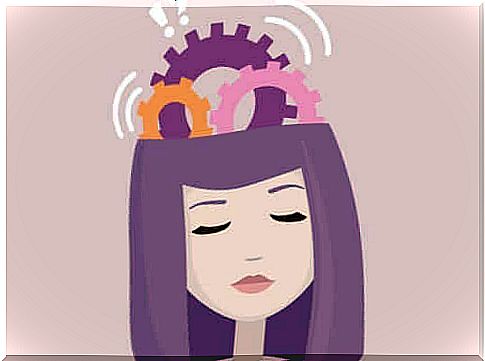What Is Multifocal Intelligence For?

Multifocal intelligence is a theory created by psychiatrist and psychotherapist Augusto Cury. It analyzes how we arrange thoughts and the effect it has on our well-being.
It is an existential approach and the main goal is to learn to manage your mind in a constructive way.
Your way of thinking, including how you handle the information you have access to, has a crucial impact on how you position yourself in the world.
This is what determines how your attitudes and behaviors develop.
If you use multifocal intelligence in the right way, you will be able to manage your thought production in the right way.
As a result, you will have more constructive attitudes and behaviors that focus on the most positive goals for you.

Multifocal intelligence
Multifocal intelligence is defined as the result of the interaction between the psychodynamic structures that exist in your mind. In simpler terms, your brain performs many processes.
The way they relate to each other gives rise to what we call multifocal intelligence.
There are four processes in multifocal intelligence:
- Thought construction
- Transformation of psychic energy
- Self-training
- Organization of memory based on conscious and unconscious history
It is our own being that controls and handles all these processes. In all words, all of them can be directed consciously. The theory states that we can achieve this as we can practice critical analysis.
This allows you to see facts from different angles and perspectives. It also allows you to relate a sentence to everything negative that happens to you.
The basics of the theory
The theory of multifocal intelligence is based on philosophy and existential psychology, as well as archetypal psychoanalysis. It is a perspective that tries to make you think logically.
By doing this, you can analyze how certain thoughts arise from others, as if it were a chain reaction.
The positive aspect of this process is that you can interpret one of the “links” in the chain and stop it, which prevents the other potential negative thoughts from affecting you.
What this theory is trying to do is to question, challenge and analyze all the disturbing thoughts that come into your mind.
They are the result of your emotional history, both on a conscious and unconscious level. According to this theory, difficult thoughts only need five seconds to leave some kind of negative imprint on the brain.
To open a window
We have this story in the cerebral cortex and this opens up a kind of “window” that has a destructive purpose. Here is an example. Let us imagine that you will speak in public and you feel that everything will go wrong.
After five seconds of this “window”, you have time to expect a whole range of negative situations, which will cause different types of destructive emotions.
If you approach this situation with rational thinking, this theory says that you will be able to prevent the “window” from opening.
It also says that with time and effort you will be able to achieve enough skills to be able to prevent the negative thinking from occurring from the beginning. This is the purpose of multifocal intelligence.

Training of multifocal intelligence
Augusto Cury has suggested various activities to train multifocal intelligence. All of these have to do with pausing so that one can become aware of the thoughts that motivate one’s actions.
This is what is called “thought management”. The recommended actions are as follows:
- Relaxation for short periods. You should take a few minutes to let your mind relax several times during the day. Take a few minutes to take a deep breath and think about the meaning and logic of what you are doing or what you are going to do.
- Emphasize positive stimuli. This means that you train your attention to focus primarily on the positive things you receive every day.
- Constructive and creative activities. Activities such as reading, writing, painting, etc. All this helps the mind to become more flexible and constructive.
- Rest properly. You should never reduce the number of hours you sleep, not under any circumstances. It is also very important that you distinguish between working hours and rest time.
Check your thoughts
- Check your expectant thoughts. Think of ideas that imagine things that could happen in the future. The only thing you should think about regarding your future is to set goals and that you do not imagine future events.
When your imagination starts to run amok, you should stop yourself. - Think about the quality of your thoughts. Be aware of disturbing thoughts that are trying to invade your mind, and then analyze them critically.
All this is a way to train the mind and transform negative emotions. According to this theory, you will thus be able to have a more intelligent, calmer, more peaceful and constructive life.









